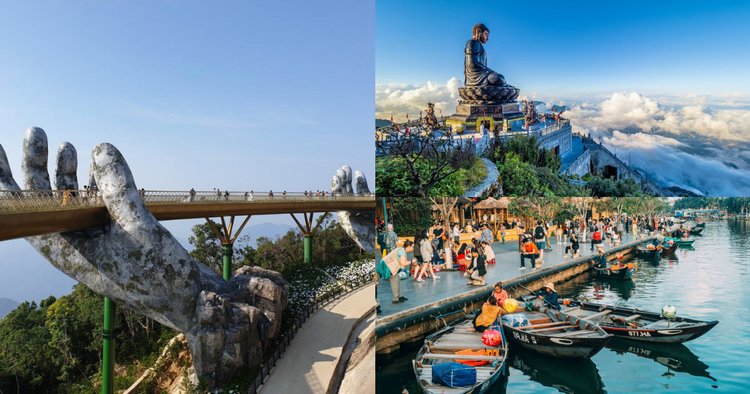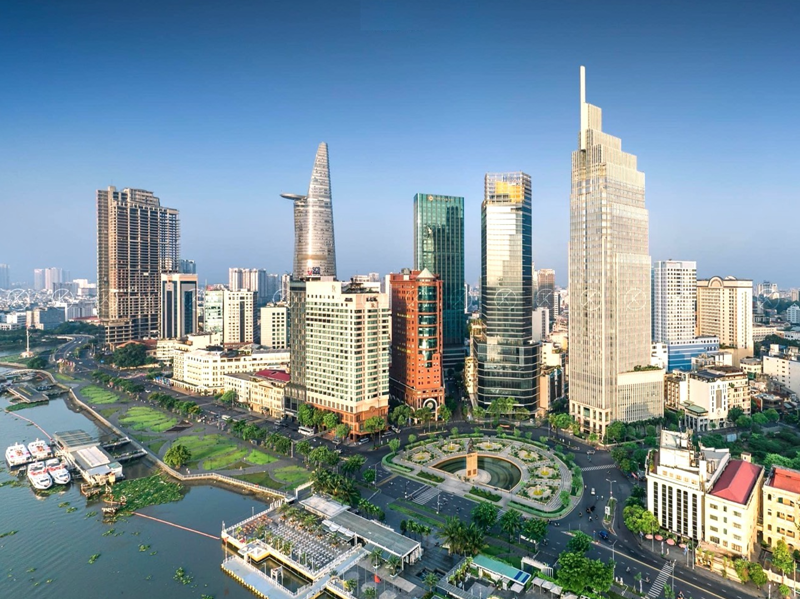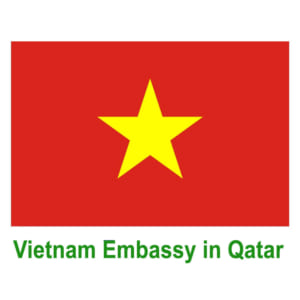
Discover Vietnam – A New Haven for Seniors and Retirees
Vietnam as a New Destination for Seniors and Retirees is rapidly gaining attention as an ideal spot for those seeking a fulfilling retirement. With its blend of affordability, rich cultural experiences, and improving infrastructure, this Southeast Asian gem offers retirees a chance to embrace a slower pace of life while enjoying tropical beauty and warm communities. As more seniors look beyond traditional destinations, Vietnam stands out for its accessibility, vibrant lifestyle, and potential for long-term satisfaction, making it a compelling choice for those ready to embark on a new chapter.
Vietnam: An Emerging Paradise for Senior Living

Vietnam’s rise as a prime retirement spot reflects a growing trend where seniors seek destinations that combine natural beauty, affordability, and a sense of adventure. This section explores how the country’s diverse landscapes, favorable climate, and evolving infrastructure are transforming it into an idyllic haven for retirees, offering a refreshing alternative to more conventional options. With its blend of serene beaches, lush mountains, and bustling yet manageable cities, Vietnam provides an environment that promotes relaxation, health, and social engagement, positioning it firmly as Vietnam as a New Destination for Seniors and Retirees.
The Allure of Vietnam’s Natural Landscapes
Vietnam’s breathtaking natural scenery serves as a major draw for seniors, providing endless opportunities for gentle exploration and peaceful reflection. The country’s varied topography, from the emerald rice terraces of the northern highlands to the pristine beaches of the central and southern coasts, creates a visually stunning backdrop that can enhance daily life and mental well-being. For retirees accustomed to fast-paced urban environments, these landscapes offer a therapeutic escape, encouraging activities like leisurely walks or birdwatching that promote physical health without overwhelming exertion.
Moreover, the accessibility of these natural wonders makes them particularly appealing for older adults. Many key sites, such as Ha Long Bay or the Mekong Delta, can be experienced through guided tours or short drives from major cities, minimizing the need for strenuous travel. This ease of access allows seniors to immerse themselves in Vietnam’s beauty at their own pace, fostering a sense of adventure while prioritizing safety and comfort. Additionally, the therapeutic benefits of nature, such as reduced stress and improved mood, are well-documented, making Vietnam’s landscapes not just a visual treat but a genuine contributor to a healthier retirement lifestyle.
Engaging with Vietnam’s natural environment also opens doors to community-based activities that build social connections. Retirees can join local eco-tours or nature clubs, where they interact with like-minded expats and locals, sharing stories and experiences in a supportive setting. This social aspect is crucial for seniors, as it combats isolation and promotes a sense of belonging, further solidifying Vietnam as a holistic paradise for senior living.
Climate and Weather Advantages for Retirees
The tropical climate of Vietnam offers significant benefits for seniors, providing warm temperatures and distinct seasonal variations that cater to different preferences and health needs. With average temperatures hovering around 25-30°C (77-86°F) in most regions, the country avoids the harsh winters that can exacerbate joint pain or mobility issues common in older age. This consistent warmth encourages outdoor activities year-round, from gentle yoga sessions on the beach to exploring gardens, all of which contribute to maintaining physical fitness and mental sharpness.
However, it’s important to note the nuances of Vietnam’s weather patterns, which vary by region. The northern areas experience a cooler, drier season from November to April, ideal for seniors who prefer milder conditions, while the south maintains a more humid, tropical climate. Retirees can strategically choose their location based on health considerations, such as opting for the drier highlands to alleviate respiratory issues. Modern amenities like air-conditioned homes and cooling centers in urban areas further mitigate any discomfort from humidity, ensuring that weather remains an asset rather than a barrier.
Beyond physical comfort, Vietnam’s climate supports a lifestyle that emphasizes wellness and longevity. The abundance of fresh, tropical fruits and vegetables available year-round aligns with diets that promote heart health and vitality, which are key concerns for seniors. Furthermore, the natural rhythm of the seasons encourages a balanced routine, with rainy periods offering indoor relaxation and dry spells perfect for social outings, ultimately enhancing the overall quality of life for retirees in this emerging destination.
Lifestyle Perks and Daily Routines for Seniors
Adopting a new daily routine in Vietnam allows seniors to redefine their retirement years with a focus on balance, leisure, and personal growth. The country’s laid-back culture promotes a slower pace of life, where mornings might involve fresh market visits and afternoons are dedicated to reading or community gatherings, fostering a sense of fulfillment that contrasts with the busyness of Western routines. This shift can be particularly rejuvenating for retirees, helping them prioritize mental health and enjoyment over obligations.
One of the standout aspects is the integration of traditional Vietnamese practices into everyday life, such as Tai Chi in public parks or herbal tea sessions, which align with senior wellness goals. These activities not only provide light exercise but also serve as social hubs, where expats and locals mingle, sharing cultural insights and building friendships. For seniors who have faced isolation in their home countries, this communal approach can be transformative, offering a supportive network that enhances emotional resilience and combats loneliness.
Ultimately, the lifestyle perks in Vietnam extend to long-term benefits, such as improved sleep patterns and reduced stress levels, thanks to the serene environments and community-oriented activities. Retirees often report a renewed sense of purpose, whether through volunteering in local conservation efforts or simply savoring the culinary delights, making Vietnam an increasingly popular choice as a new destination for seniors and retirees seeking a vibrant yet peaceful existence.
Affordable Living: The Financial Appeal of Retirement in Vietnam

The financial advantages of retiring in Vietnam make it an attractive option for seniors looking to stretch their pensions further without sacrificing quality of life. With costs significantly lower than in many Western countries, retirees can enjoy comfortable accommodations, healthcare, and leisure activities on a modest budget. This economic accessibility underscores Vietnam as a New Destination for Seniors and Retirees, where prudent financial planning can lead to a luxurious lifestyle that feels unattainable elsewhere.
Cost of Housing and Real Estate Options
Housing in Vietnam presents an affordable entry point for retirees, with a wide range of options from modern apartments in bustling cities to tranquil villas in rural areas. Rental prices in popular expat hubs like Da Nang or Ho Chi Minh City start as low as $300-600 per month for a comfortable one-bedroom unit, allowing seniors to secure prime locations without financial strain. This affordability is amplified by the availability of long-term leases and furnished properties, which simplify the transition for newcomers and reduce upfront costs.
Furthermore, the real estate market offers opportunities for property ownership, particularly through government incentives for foreign investors. Retirees can purchase condos or houses at fractions of the cost compared to their home countries, with prices ranging from $50,000 to $200,000 depending on the region and amenities. However, it’s essential to navigate legal requirements, such as partnering with local entities, to ensure compliance and protect investments. This strategic approach not only preserves financial security but also builds equity, providing a potential income stream through rentals.
Beyond the numbers, the value of affordable housing lies in the lifestyle it supports. Seniors can allocate savings towards travel, dining, or healthcare rather than housing expenses, enabling a more enriched retirement. Community developments tailored for expats, complete with amenities like pools and gardens, further enhance the appeal, fostering a sense of community while maintaining budget-friendly living.
Daily Expenses and Budget Management
Managing daily expenses in Vietnam is straightforward and cost-effective, allowing retirees to maintain a high standard of living on a fixed income. Groceries, dining out, and transportation costs are remarkably low; for instance, a meal at a local restaurant might cost just $2-5, and public transport like buses or taxis is under $1 per ride. This frugality extends to utilities and entertainment, where monthly bills for electricity and internet rarely exceed $100, freeing up funds for personal enjoyment.
To optimize budget management, seniors can adopt simple strategies such as shopping at local markets for fresh produce, which is both economical and healthier, or using ride-sharing apps to minimize transport costs. Financial tools like international banking apps facilitate easy currency conversion and transfers, helping retirees track spending and avoid surprises. Additionally, Vietnam’s growing digital economy offers cashback rewards and discounts for seniors, making everyday necessities even more accessible.
The psychological benefits of affordable living cannot be overstated; retirees often experience reduced financial stress, which contributes to better mental health and overall well-being. By focusing on value-for-money experiences, such as affordable spa treatments or cultural events, seniors can cultivate a fulfilling routine that aligns with their interests, reinforcing Vietnam’s status as an ideal retirement haven.
Long-Term Financial Planning and Investments
Effective long-term financial planning in Vietnam involves leveraging local opportunities to secure a stable retirement. Retirees can explore investment options like fixed-deposit accounts with competitive interest rates or real estate funds that yield steady returns, often surpassing those in developed nations. Government programs, such as tax incentives for expats, further enhance these prospects, allowing seniors to grow their savings while enjoying the country’s low cost of living.
Diversifying investments is key; for example, combining property ownership with stock market participation in Vietnam’s emerging economy can provide a balanced portfolio. Financial advisors specializing in expat services offer tailored guidance, helping navigate currency fluctuations and inflation risks. This proactive approach ensures that retirees not only preserve their wealth but also potentially increase it, funding hobbies or travel without dependency on pensions alone.
Ultimately, the financial appeal of Vietnam lies in its ability to offer security and growth, empowering seniors to retire with confidence. By integrating these strategies, individuals can fully embrace the retirement lifestyle, making Vietnam as a New Destination for Seniors and Retirees a financially savvy choice.
Healthcare in Vietnam: Accessibility and Quality for Retirees

Vietnam’s healthcare system is evolving to meet the needs of an aging population, providing retirees with accessible and reliable services that prioritize affordability and innovation. As more seniors choose this destination, the focus on preventive care and specialized treatments highlights its potential as Vietnam as a New Destination for Seniors and Retirees, where health maintenance doesn’t have to be a financial burden.
Availability of Medical Facilities and Services
Medical facilities in Vietnam are widespread and increasingly modern, with major cities boasting international-standard hospitals equipped with state-of-the-art technology. Retirees in places like Hanoi or Da Nang can access comprehensive services, including routine check-ups and emergency care, often at a fraction of Western prices. This infrastructure supports a seamless healthcare experience, with English-speaking staff in many clinics easing communication for expats.
The network of clinics and pharmacies extends to rural areas, ensuring that even those in quieter regions have access to essential services. Telemedicine options are on the rise, allowing seniors to consult specialists remotely, which is particularly useful for those with mobility challenges. Government initiatives continue to improve rural healthcare, making it a viable option for retirees seeking a peaceful yet supported environment.
Beyond basic services, wellness centers offer holistic treatments like acupuncture and physiotherapy, integrating traditional Vietnamese medicine with modern practices. This blend not only addresses physical health but also promotes mental well-being, creating a rounded approach to senior care.
Quality and Standards of Care for Older Adults
The quality of healthcare in Vietnam has seen remarkable improvements, with many facilities adhering to international standards through accreditations from organizations like JCI. Retirees benefit from skilled professionals trained abroad, ensuring high-quality treatments for conditions common in older age, such as diabetes or heart disease. Patient satisfaction is high, with personalized care plans that emphasize dignity and respect.
Specialized geriatric services are expanding, including rehabilitation programs and chronic disease management, tailored to the needs of seniors. Hospitals often provide comprehensive packages that cover consultations, tests, and follow-ups, promoting continuity of care. This focus on quality helps retirees maintain independence and enjoy their golden years.
Moreover, ongoing investments in medical education and technology ensure that standards keep pace with global advancements. Retirees can access cutting-edge treatments, like minimally invasive surgeries, at affordable rates, making healthcare a cornerstone of Vietnam’s appeal as a retirement destination.

Insurance and Cost-Effective Healthcare Options
Navigating insurance in Vietnam is essential for retirees, with options ranging from local plans to international policies that cover expat needs. Costs are low, with comprehensive coverage available for under $100 monthly, including hospital stays and medications. This affordability allows seniors to prioritize health without financial worry.
Partnerships between insurers and healthcare providers streamline claims and services, offering packages specifically for retirees. Government health cards for long-term residents further reduce out-of-pocket expenses, enhancing accessibility.
By leveraging these options, seniors can achieve peace of mind, knowing that quality care is both available and sustainable. This financial ease reinforces Vietnam’s position as an emerging paradise for retirees.
Cultural Immersion and Exploration: Embracing Vietnamese Life
Immersing in Vietnamese culture offers retirees a chance to enrich their lives through traditions, cuisine, and community interactions. This cultural tapestry not only provides entertainment but also fosters personal growth, solidifying Vietnam as a New Destination for Seniors and Retirees where every day brings new discoveries.
Engaging with Local Traditions and Festivals
Vietnam’s vibrant festivals provide seniors with opportunities to participate in age-old customs. Attending events like Tet or the Mid-Autumn Festival allows retirees to experience community spirit firsthand.
The interactive nature of these celebrations encourages social bonds. Retirees can join in dances or craft workshops, promoting a sense of inclusion.
Over time, this engagement deepens cultural understanding, leading to a more fulfilling retirement.
Culinary Experiences and Healthy Eating
Vietnamese cuisine emphasizes fresh ingredients. Retirees can explore markets to select seasonal produce, supporting a nutritious diet.
Cooking classes offer hands-on learning. Seniors might master dishes like pho, blending health benefits with enjoyment.
This focus on food as culture enhances well-being, making Vietnam an ideal spot for culinary enthusiasts.
Language and Social Integration
Learning Vietnamese basics aids daily interactions. Retirees can take classes or use apps to build language skills, easing integration.
Joining expat groups facilitates friendships. Sharing experiences in community settings combats loneliness.
Through these efforts, seniors achieve a balanced, connected lifestyle in their new home.
Visa and Residency Considerations for Senior Expatriates in Vietnam
Securing the right visa is crucial for retirees, with Vietnam offering various options that cater to long-term stays. This process, while straightforward, highlights the country’s welcoming stance as Vietnam as a New Destination for Seniors and Retirees, ensuring a smooth transition into expat life.
Types of Visas Available for Retirees
Options include tourist visas for short stays. Retirement visas provide extended periods, ideal for permanent relocation.
The application process involves documentation. Retirees must prepare financial proofs and health certificates.
Understanding these choices allows for informed decisions, securing a stable future.
Requirements and Application Process
Key requirements include age verification. Applicants over 55 may qualify for specific programs.
The process is online, with embassy support. Timely submission avoids delays.
Navigating this successfully opens doors to residency benefits.
Long-Term Residency and Rights
Once obtained, residency grants access to services. Retirees can open bank accounts and access healthcare.
Renewal is simple with compliance. This stability enhances the retirement experience.
Retiree Communities and Social Opportunities### Retiree Communities and Social Opportunities in Vietnam
Vietnam’s unique blend of tradition and modernity has led to the emergence of vibrant retiree communities that cater specifically to seniors. These communities offer a supportive network, built on shared experiences and mutual interests, creating an environment where retirees can thrive socially and emotionally during their golden years. As they become part of these enriching social networks, many seniors find that their quality of life improves significantly.
Active Living in Senior Communities
Many retirees gravitate towards established expat communities in cities like Ho Chi Minh City, Hoi An, and Nha Trang. These areas are not just known for their picturesque landscapes but also for their active lifestyle offerings tailored for older adults.
Fitness classes designed specifically for seniors, such as yoga or tai chi, are readily available. Seniors can enjoy these activities while meeting others with similar interests, fostering camaraderie and support. Additionally, many communities organize regular outings, trips, and events, ensuring retirees remain engaged and active within their neighborhoods.
The positive energy that comes from participating in group activities promotes both physical health and emotional well-being. This dynamic is vital because it helps counteract feelings of isolation that sometimes accompany aging, particularly for expatriates who may be far from family.
Clubs and Interest Groups
Retirement in Vietnam opens up opportunities to join various clubs and interest groups catering to different hobbies and passions. Whether it’s a book club, painting class, gardening group, or cooking workshop, there’s likely a community focused on almost every interest imaginable.
These groups often create a sense of belonging. For instance, a photography club may organize excursions to capture stunning landscapes, leading to friendships formed over shared creative pursuits. Learning new skills or honing existing ones enriches life, making retirement an exciting journey rather than a stagnant experience.
Moreover, these communities often include members from diverse backgrounds. This multicultural environment allows retirees to exchange cultural insights and perspectives, creating a rich tapestry of experiences. Engaging in local traditions and customs through these clubs deepens one’s appreciation of Vietnamese culture as well.
Volunteer Opportunities
Volunteering presents another gratifying way for retirees to engage with their community in Vietnam. Numerous organizations welcome senior volunteers, offering them a platform to contribute positively. Whether helping at local schools, participating in environmental initiatives, or assisting in healthcare outreach programs, seniors can make a meaningful impact while forging connections with locals and fellow expats.
Volunteering not only provides a sense of purpose but also enhances life satisfaction. The reciprocal relationship between giving and receiving benefits bolsters mental health, reinforces social ties, and fosters community cohesion. Many volunteers report feeling more fulfilled and connected to their surroundings, reinforcing the idea that retirement can be a period of growth and contribution.
Safety and Security: A Perspective on Retirement in Vietnam
Safety and security are paramount considerations when choosing a retirement destination. Vietnam consistently ranks as one of the safest countries in Southeast Asia for expatriates, making it a compelling choice for retirees seeking peace of mind. The low crime rates, combined with a friendly local population, create an atmosphere conducive to a relaxed and fulfilling retirement.
General Crime Rates and Personal Safety
Vietnam boasts relatively low levels of violent crime compared to many Western nations. Petty crimes such as pickpocketing can occur in crowded tourist areas, but these incidents are rare, especially in residential neighborhoods where many retirees reside.
Seniors commonly report feeling secure while walking around their communities, and many even develop trusting relationships with local shopkeepers and neighbors. Local police are generally approachable, and many officers understand basic English, which provides an added layer of comfort for expatriates who may need assistance.
For those who prioritize personal safety, it’s wise to adopt standard precautions, such as avoiding poorly lit areas after dark and securing belongings. By doing so, retirees can confidently explore their surroundings without undue concern.
Healthcare Facilities and Emergency Services
Access to quality emergency services is crucial for retirees, especially for those managing chronic conditions or facing age-related challenges. Vietnam’s major cities feature numerous hospitals equipped with rapid response teams, ensuring quick medical attention in emergencies. Access to ambulance services is also expanding, further improving safety for seniors who may require urgent care.
In addition to hospitals, several private clinics provide specialized care tailored to expat needs. These facilities often have English-speaking staff, making communication easier for retirees navigating healthcare systems. Ensuring that personal health information is well-organized and accessible can streamline encounters with medical professionals.
Furthermore, many expatriate communities maintain close contacts with local healthcare providers, enabling retirees to quickly locate trustworthy options for routine or emergency care. This collaborative approach fosters a sense of security, knowing that help is readily available when needed.
Community Support Systems
Living in Vietnam offers retirees access to strong community support systems. Many expat residents actively participate in neighborhood watch programs or community associations aimed at promoting safety and engagement. These groups often organize meetings and events centered around safety awareness, building trust among residents.
Moreover, the warmth and hospitality of the Vietnamese people contribute significantly to the overall sense of safety. Locals tend to look out for one another, creating a protective network that benefits everyone in the community. Retirees often find that simply interacting with their neighbors leads to positive experiences and a strengthened feeling of security.
Navigating Daily Life: Practical Considerations for Seniors in Vietnam
Moving to Vietnam is an exciting adventure; however, navigating daily life in a new country requires careful planning and consideration. For retirees, understanding practical aspects such as transportation, shopping, and local customs can enhance the overall experience and ensure a smoother transition into this new chapter of life.
Transportation Options for Seniors
Transportation in Vietnam varies widely, with choices ranging from traditional taxis to modern ride-hailing apps like Grab. Public transportation, such as buses and trains, is affordable and efficient, providing easy access to urban centers and surrounding areas.
Many retirees opt for motorbike taxis, known as “xe ôm,” due to their convenience. However, for those uncomfortable with motorcycles, hiring a taxi or utilizing ride-hailing services is a safer and more comfortable alternative. Most drivers are patient and accommodating, offering assistance when needed.
Additionally, some cities have introduced bicycle-sharing programs, promoting eco-friendly transport options. Cycling not only keeps seniors active but also encourages exploration of local neighborhoods, enhancing the cultural experience.
Shopping and Dining: Local Markets and Expat-Friendly Options
Shopping for daily necessities is an enjoyable experience in Vietnam, thanks to its plethora of local markets and modern supermarkets. Fresh produce, meats, and seafood are readily available, often at lower prices compared to Western countries.
Local markets are bustling hubs where retirees can immerse themselves in Vietnamese culture. Negotiating prices and selecting ingredients fosters connections with vendors and creates opportunities to practice language skills. For those seeking familiar products, many international brands can also be found in larger supermarkets catering to expats.
Dining out is another highlight of living in Vietnam. From street food stalls to elegant restaurants, retirees can savor a diverse range of culinary delights. Many establishments offer English menus, easing the dining experience. Additionally, expat-friendly eateries often host events or gatherings, encouraging social interactions among retirees.
Understanding Cultural Norms and Etiquette
Embracing Vietnamese culture involves understanding social norms and etiquette, which can vary significantly from Western customs. Politeness, respect for elders, and community-oriented values are deeply ingrained in Vietnamese society.
For instance, greetings typically involve a slight bow and a warm smile. Understanding the importance of family and community will allow retirees to form authentic relationships with locals. Practicing common phrases in Vietnamese, like “Xin chào” (hello) and “Cảm ơn” (thank you), goes a long way in establishing goodwill.
Additionally, dress codes may differ based on occasions. While casual attire is acceptable for daily activities, dressing modestly for visits to temples or during formal events shows respect for local customs.
Conclusion
In conclusion, Vietnam stands out as an emerging paradise for senior living, offering a harmonious blend of affordability, quality healthcare, cultural immersion, and vibrant community life. With its welcoming population, safe environments, and myriad social opportunities, retirees can navigate daily life with ease, embracing a fulfilling retirement in this beautiful Southeast Asian nation. As the dream of retirement evolves, Vietnam provides a distinctive and enriching setting for seniors looking to embark on new adventures while enjoying the comforts of home.





